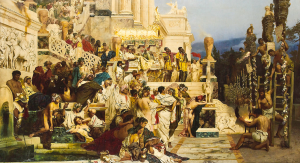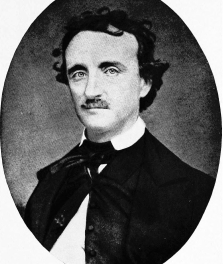We support our Publishers and Content Creators. You can view this story on their website by CLICKING HERE.
Where there is Pride, there is prejudice; where there is prejudice, there is hatred; where there is hatred, there is the dehumanizing of the enemy; and where there is the dehumanizing of the enemy, there is the extermination that follows.
 As I watch the rise of the politics of hatred sweep like an angry wave across the United States, from Boston to Berkeley, I am overcome with a gnawing sense of déjà vu.
As I watch the rise of the politics of hatred sweep like an angry wave across the United States, from Boston to Berkeley, I am overcome with a gnawing sense of déjà vu.
The fact is that I have seen it all before.
It was a long time ago and a long way from the United States but it’s still close to home. As an angry young man in my native England, I had been one of the leaders of a white supremacist party. I fought on the streets against the Marxists. I spoke at a rally during which a counter-demonstrator was killed. At another demonstration, one of my friends was killed after being struck on the head by an “anti-fascist” counterdemonstrator. Yes indeed—Charlottesville, Boston, Berkeley—I’ve seen it all before. And not merely as a passive spectator watching it all unfold on television but as an active participant, feeling the rage and the anger and experiencing the violence at first hand.
Armed with this experience, I shared my reaction to the events in Charlottesville in an article for the National Catholic Register. I wrote of how my sense of racism had been nurtured in the culture of relativism at the public high school I attended. “There was no suggestion that young men and women should be taught virtue; no suggestion that the real meaning of love was not self-gratification but the laying down of one’s life for another; no suggestion that there was a God or, if there was, that He was relevant to our lives. Christianity, if it was mentioned at all in the classroom, was sneered at by the teachers, almost all of whom seemed to be agnostics or atheists, and several of whom were avowed Marxists.” I observed that this secularized education, laboring under the demands of the dictatorship of relativism, was not that dissimilar to the education that young people receive today in the United States. Instead of an education in virtue, rooted in self-sacrificial love, children are taught to rebel against everything virtuous. In this vicious and vacuous environment, we should not be surprised that the virtue-free void is being filled with viciousness. “If we will not teach goodness, truth, and beauty,” I wrote, “we cannot avoid breeding viciousness, falsehood, and ugliness, and this will include the rise of Pride in all its ugly manifestations, including Pride in one’s own perceived racial identity.” It is in this atmosphere of relativism, in which reality is narcissistically self-defined, that Pride runs rampant, not least of which is racial Pride: Black Pride as well as White Pride, neither of which is to be condoned and both of which are to be condemned.
The most gratifying response I received to that article was from a priest friend of mine, an African American, who refreshingly refused to demonize those who would demonize him. Instead of stereotyping the white supremacists and seeing them as scapegoats who needed to be destroyed for the good of “the people” (in much the same way, ironically, that the Nazis had stereotyped the Jews and used them as scapegoats), this wise priest pointed the finger at those who justified hatred in the fight against hatred. “The self-congratulatory posturing of the ‘diversity’ crowd—even the Catholic ones—is only exacerbating the problem,” he wrote, “and further dehumanizing the hurt, confused and angry people who are the real periphery dwellers that need as much compassion and outreach as do those victimized by some of the same.”
It takes a Christian to say such a thing. It takes a Christian to love his enemies. It takes a Christian to see the racists as “hurt, confused and angry people” and as “the real periphery dwellers” who need “compassion and outreach.” What my African American friend was doing, faced with his white supremacist enemy, was turning the other cheek. He was returning their anti-Christian racial hatred with the love of Christ that dwells in him.
How different is his response to that of the secular media, which gloats with sadistic glee when hate-filled anarchists use violence against their enemies? Aren’t such people as full of hatred as the neo-Nazis? Are they not dehumanizing their enemies, as my friend says?
The problem, ultimately, is Pride. And it’s no coincidence that both sides wear their Pride with pride. The anarchists wear their Pride at “Pride” rallies, hating marriage, chastity and Christianity; the racists wear their Pride as “White Pride” or “Black Pride” rallies, demanding white power or black power, hating Christianity and becoming neo-pagans or members of the Nation of Islam. At the hateful heart of Pride is egocentrism. It is the self-deification which always judges others from the perspective of the self. It is for this reason that pride is always inseparable from prejudice.
The politics of Pride comes in many colours, not merely connected to the colour of the skin but to the colour of the shirts that we choose to wear: red shirts, brown shirts, black shirts. In truth, it’s not the colour of the Pride that matters but Pride itself. Where there is Pride, there is prejudice; where there is prejudice, there is hatred; where there is hatred, there is the dehumanizing of the enemy; and where there is the dehumanizing of the enemy, there is the extermination that follows.
This essay was first published here in September 2017.
The Imaginative Conservative applies the principle of appreciation to the discussion of culture and politics—we approach dialogue with magnanimity rather than with mere civility. Will you help us remain a refreshing oasis in the increasingly contentious arena of modern discourse? Please consider donating now.
The featured image is “Nero’s torches” (1882) by Henryk Siemiradzki, and is in the public domain, courtesy of Wikimedia Commons.
Share This Story, Choose Your Platform!
Go to Top

 Conservative
Conservative  Search
Search Trending
Trending Current News
Current News 





